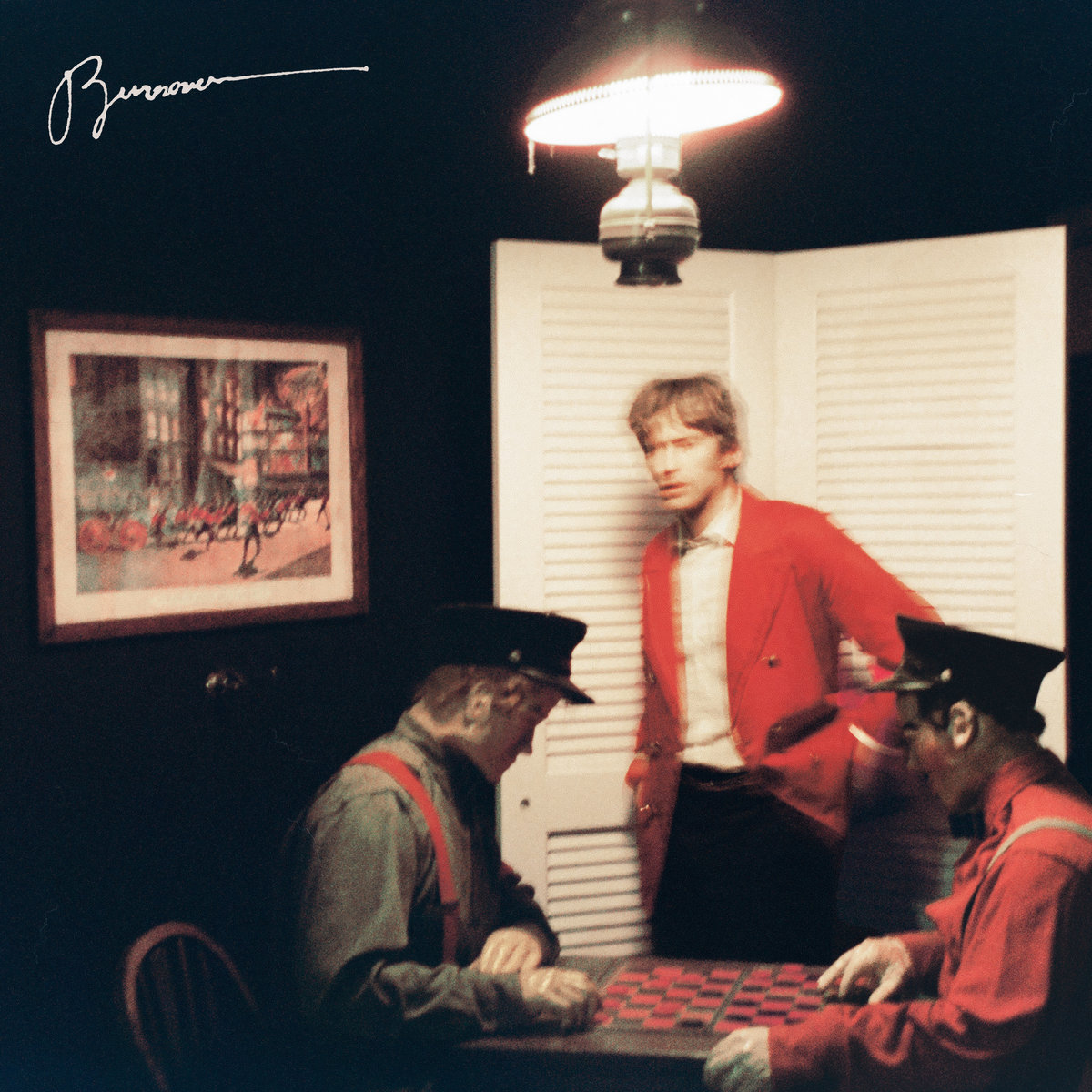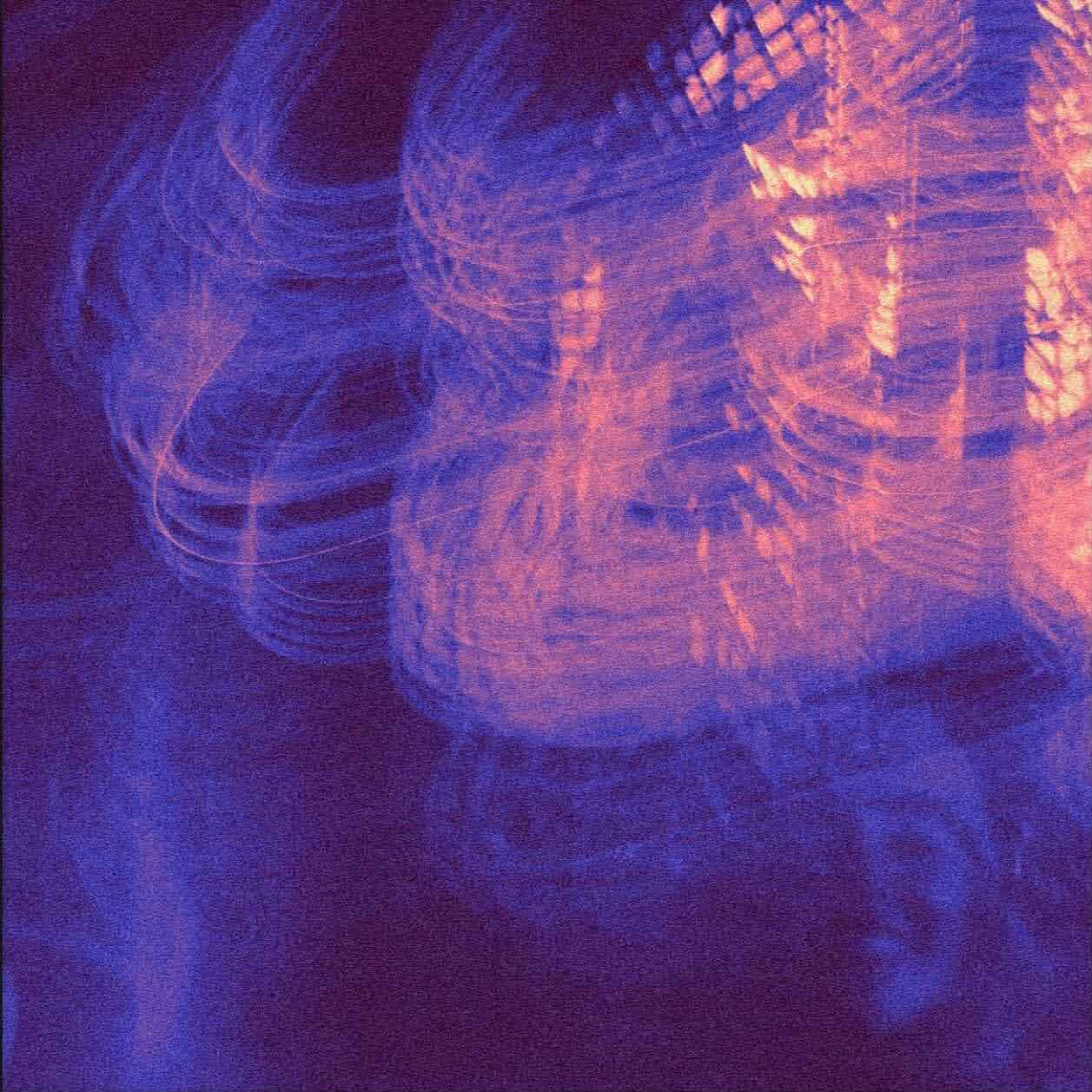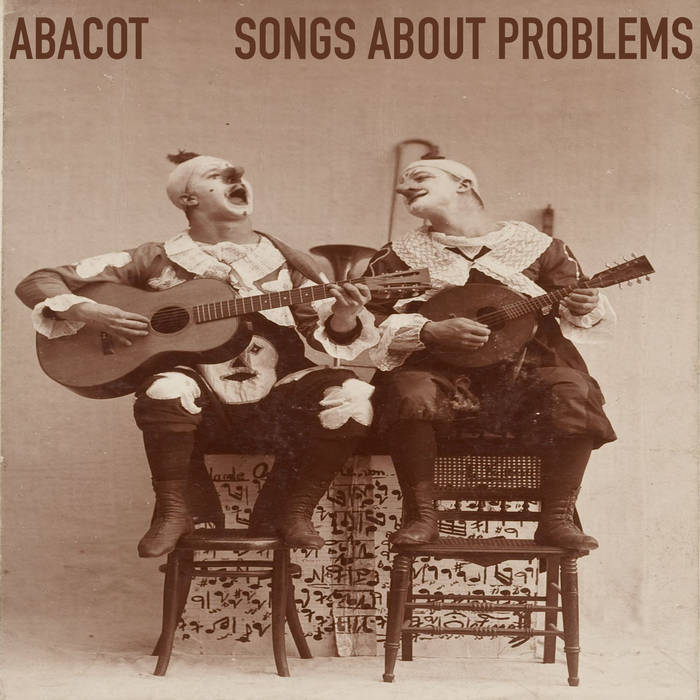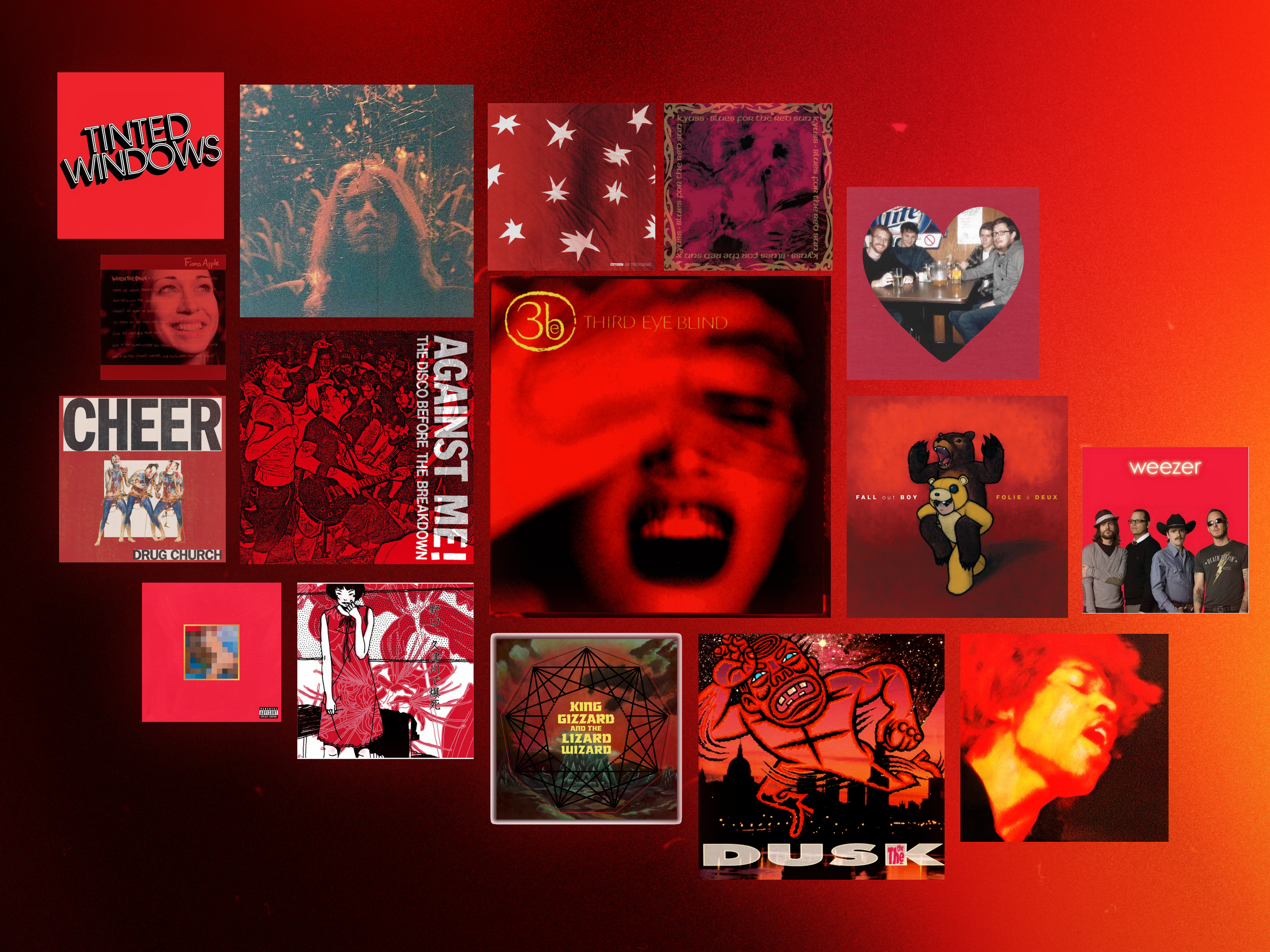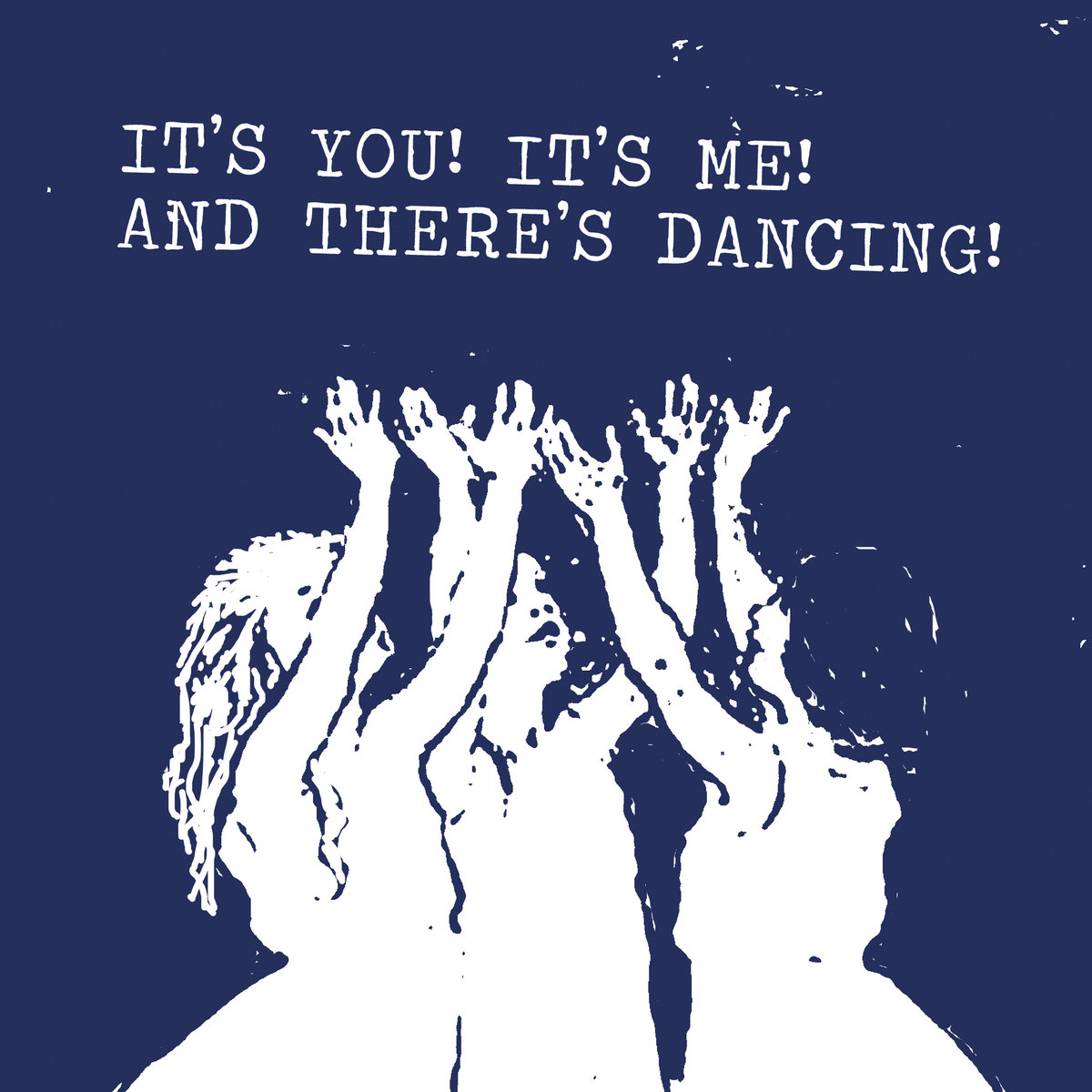Greg Freeman – Burnover | Album Review
/Transgressive Records
To pay respect to a record that wastes no time getting right to it, I’ll do the same. Greg Freeman’s Burnover is one of the best projects of the year, and it makes its case in the first five seconds. The initial moments of the first track and lead single “Point and Shoot,” a straight shooting guitar-forward heater that tragicomically evokes the Alec Baldwin disaster, lay out the blueprint that defines the entire record. Freeman’s delivery of the opening lines “Shot down in the shade of cardboard canyons / They cut the scene and saw blood on the Cameraman” lets the listener know exactly what they’re in for. The vocals are idiosyncratic yet immediately iconic. The lyrics are somewhat elusive but evoke vivid imagery rooted in a physical place. Emotionally, there’s a touch of familiar wryness, but his heart is refreshingly on his sleeve. Where many insert a throat-clearing preamble or instrumental intro, Freeman starts with a confident crack and a bang.
Freeman kicks off his sophomore album with an appropriate level of urgency as he tries, and succeeds, to capitalize on the organic ascension he’s experienced since the release of his 2022 self-released debut, I Looked Out. Unlike Burnover, which seems to have built up a bit of a hype train, his first record was released with no label and basically zero marketing. Freeman earned his traction with a once common, now radical formula of involvement in a strong local scene, playing a bunch of kickass live shows, and good old-fashioned word-of-mouth. Now he’s got a record deal, a calendar full of shows opening up for Hamilton Leithauser and Grandaddy, and a Rolling Stone profile. In his words, he’s “not trying to cater to anyone” on this album, but I think it’s safe to say Greg knows he’ll be addressing a larger audience.
In conjunction with his individual rise to relative stardom, there seems to be a growing appetite for this flavor of indie rock. I imagine anyone reviewing Freeman’s sophomore effort will be playing a version of the “Don’t Mention MJ Lenderman Challenge,” and it’s hard not to see these two as part of the same overarching trend. Though I’m not sure alt-country is the perfect label for Freeman’s music, some of the elements are there, as are the en vogue ‘90s guitar music references spanning the modern music landscape. These influences are connected. The current alt-country boom mirrors a similar explosion in the ‘90s, both of which coincided with a rise in commercialized country music. In a sense, Greg, MJ, and others in this lane are photo negatives of the larger pop country industry, and their respective local scenes are rough and rowdy antidotes to its monolithic polish and sheen.
In contrast to Lenderman and others who carry this “alt-country” label, Freeman’s style is more freewheeling cowboy than Southern gothic. Greg was nice enough to respond to a few questions I sent over to him, and he was clear that he didn’t have a strict master plan for what his second album was going to sound like. “I let the songs kind of write themselves, and wasn’t too concerned with having them fall into any cohesive sound or style.” That starts to become apparent when the second track, “Salesman,” comes in with its walloping horns and buzzing guitar, then gives way to the plucky piano ballad “Rome, New York.” These two songs flaunt Freeman’s ability to turn his sound on a dime and his trust that the songs “would have some kind of cohesive identity, without putting any rules on [them] sound-wise.” They’re in totally different energetic registers but feel cut from the same cloth.
When I asked him the somewhat cliché “musical influences” question, he indulged my suggestion that Modest Mouse may have imprinted on his sound, and I hear in both artists that lack of concern over sonic cohesion. On some of Modest Mouse’s best projects, like 2000’s landmark The Moon and Antarctica, the band didn’t confine themselves to a particular genre and instead seemed more focused on evoking salient imagery (as exemplified by the album title). Greg seems to take that approach as well. On the brilliant title track, a reference to a region of upstate New York known as a hotbed for 19th-century religious fervor, he sings of a blue frozen morning, smoke on the horizon, a fire station barroom, psychic highways, and glacial lakes. It loosely tells the story of a firefighter’s strike, but the narrative is incomplete and secondary to the pictures the song projects onto my brain. It’s all set to a backdrop of acoustic guitar, piano, and harmonica that would sound right at home on a ‘70s Dylan record.
These folk rock arrangements are one of the most obvious ways in which Freeman’s second album progresses from his debut. His band of talented musicians from the local Burlington scene flesh out the album’s “live in the studio” sound, making every track feel as if it’s being brought to life just as it enters your ears. On an Instagram post earlier this summer accompanying the release of the single “Curtain,” Freeman recalled joyful laughter in the studio as his piano player laid down the track’s “honky tonk” riff that was simply “so perfect that it’s kind of funny.” That magic certainly translates to the studio recording. The band’s chemistry is audible as they jam along so effortlessly for seven minutes that I wished it would go on for seventy.
I’ve spent months with Burnover at this point, and it’s still slowly revealing itself to me. Greg and I agreed that the album wasn’t necessarily “accessible,” but it does offer several handholds and entry points in the form of highly memorable melodies, riffs, and lines. The guitar riff on the pop-punkish “Gulch” and the “rusty metal throne” line from “Curtain” are just a couple of tidbits that have stuck with me for weeks now, and I suspect I’ll continue digging up new golden nuggets as I keep listening along with the rest of the world. The album just dropped on streaming as I’m writing this, and it feels like the celebration around Burnover has only just begun. I asked Greg about the future of the industry, specifically in the context of the recent Spotify reckoning and his complicated feelings towards the platform as a sort of necessary, but possibly transient, evil. He left me with his hope that “the freakier the future gets, the stronger our communities and independent movements will become.” He’s certainly doing his part.
Parker White lives and works in Atlanta where he moonlights as a music writer. When not attending local shows or digging for new tunes, he’s hosting movie nights, hiking/running, or hanging out with his beloved cat, Reba McEntire. You can find him on Twitter and Instagram @parkerdoubleyoo, and you can read other stuff he’s written over on his Substack.
